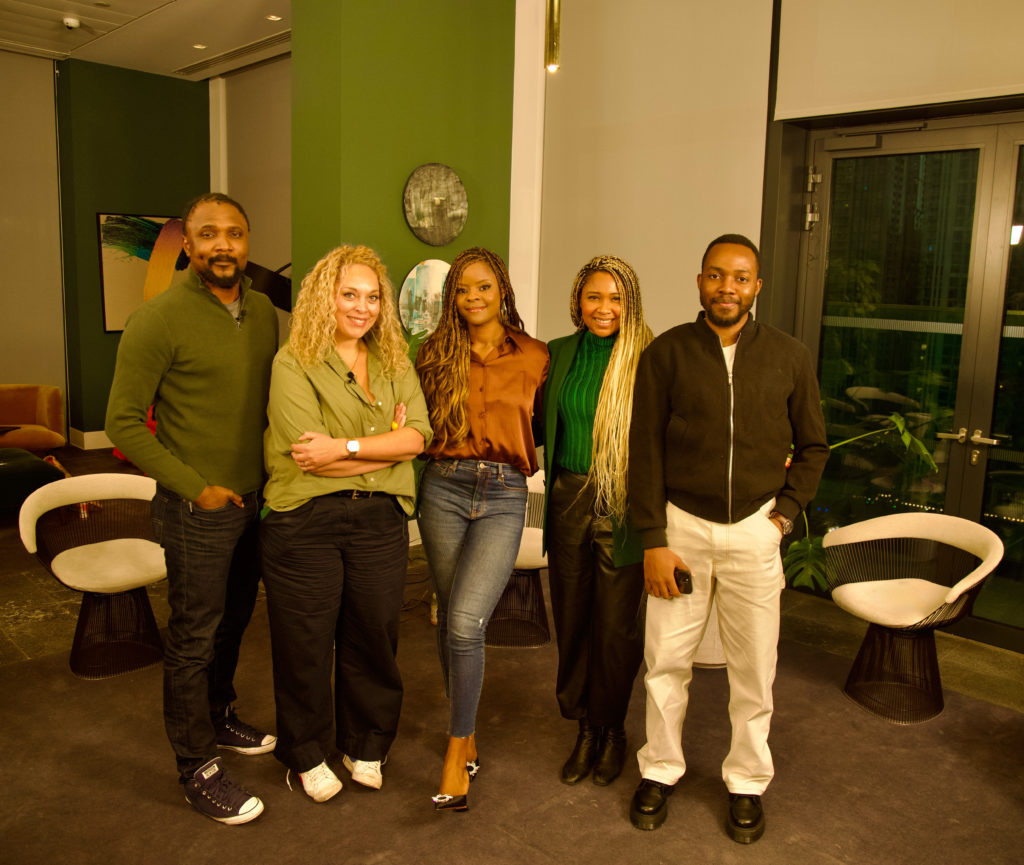
Following a bearish 2023, Africa’s tech ecosystem is kicking off 2024 with a new slate and an opportunity to define the new year and what most people predict to be a kinder year for startups and businesses.
For tech entrepreneurs, The Crossover Show – an annual recap of the most significant moments in African tech, provided exciting predictions and trends that will define Africa’s tech industry in 2024.
In the show’s pilot, media entrepreneur Fatu Ogwuche sat with some prominent players in the ecosystem – OO Nwoye, Founder of TechCircle – a business development service that offers advisory services to early-stage startups; Benjamin Dada, Founder of media company, BenjaminDada.com; Jessica Hope, Founder of Tech PR firm Wimbart, and June Angelides MBE, Partner at Levare Ventures, an angel syndicate that co-invests into African Startups.
With prominent and opinionated personalities, conversations about the ecosystem often get spirited, especially while discussing top media moments, top tech personalities, and what product topped the chart. For 2024, Fatu asked the guests for some great predictions to look out for in the new year.
Let’s dig in.
An African IPO
As Nigerian startups continue to deal with the economic downturn and the unforgiving business environments that have become a mainstay since the COVID-19 pandemic, Big Tech This Week’s and the host of The Crossover Show, Fatu Ogwuche believes that more companies with solid fundamentals and growth prospects will follow VFD’s footsteps and seek IPOs to become publicly listed and new capital.
“I was excited about VFD’s IPO in 2023, and I am looking forward to more IPOs. I want to see exits that are not necessarily acquisitions but offering a part of your company to the public so they can buy into it,” Fatu says.
In October 2023, Lagos-based investment firm VFD Group listed on the Nigerian Exchange Limited (NGX) at N269.30 – boosting the market capitalisation of the NGX by N45 billion. The public listing was a calculated move to give the company greater access to capital markets and achieve specific strategic goals for growth and expansion.
One of the anticipated listings enthusiasts hope to see in 2024 is Flutterwave, Africa’s biggest payments company. The company indicated interest in an IPO as early as 2022 and is reportedly finalising the steps to list publicly. CEO Gbenga Agboola told The Banker’s Joy Macknight last year that many factors will determine the timing of the listing without disclosing any details on the dates for its IPO.
However, there have been speculations that the company would take a page from MTN’s regional listing playbook and list in the US and Nigeria. Fatu says, “Hopefully, Flutterwave scales that process, at least listing in Nigeria to begin with and then to NASDAQ or wherever else.”
At least one reckless founder will go to jail
TechCircle’s OO Nwoye also predicts that one founder will go to jail. While Africa’s tech space has brought a lot of pride for its players, several startup founders have soiled the good deeds of many others in the past with their actions, either from their lack of competence or integrity.
“We have already seen an investor go to jail, and the idea that the tech ecosystem is a Wild West will be dispelled. At least one reckless founder will go to jail if they’re not careful. We’ll see a tightening of the VCs because pressure will come in from the LPs.” he says.
During The Crossover Show, the guests discussed the actions of certain players in the tech space who make investors wary. The misappropriation of funds by Dash founder Prince Boakye Boampong and Tingo Founder Dozy Mmobuosi, who was charged with securities fraud in the U.S., were mentioned.
“Trust is fragile and takes a while to build. The high-trust ecosystem we have today was built over time. The founders coming on board must understand this and act carefully not to break it. Also, as an ecosystem, we have to be careful of bad actors and weed them out fast because if the trust is gone, it affects everyone,” Oo Nwoye told Techcabal earlier in 2023 amid reports that Nigerian investors were collating a list of unethical founders to keep in check.
Increased collaboration and sales drive would birth more profitable companies.
One of the most impressive products from the Nigerian tech space last year was Chowdeck. This Y Combinator-backed Nigerian food delivery startup crossed ₦1 billion in monthly gross merchandise value (GMV). While the company claims to be the country’s ‘most efficient’ food delivery startup, its partnerships with companies such as Eden Life fueled its growth.
For context, on the day the partnership was launched, Chowdeck recorded a 15% increase in orders compared to the busiest day of the previous week. June Angelides MBE expects to see more profitable collaborations between startups. “I think we’re beginning to see the early stages of that. The collaborations will probably be driven by investors, encouraging their startups to think outside the box, and it would put them in a stronger position to be ready for exits in the future,” she says.
In a year when other food delivery companies such as Jumia Food and Bolt Food exited the market due to a lack of profit, ChowDeck expanded to Port Harcourt, Ibadan, and Abuja making an average of 10,000 daily deliveries across the four cities despite the different economic hurdles such as food inflation and fuel scarcity following the removal of petrol subsidy.
OO Nwoye, the tech pundit and advisor, believes that this trend of running a sales-driven company would also lead to more resilience from founders and operators who run Nigerian tech companies. Echoing those thoughts, Wimbart’s Jessica Hope explains that collaborations and mergers would help Nigerian companies scale and become profitable faster.
“We need to get more founders who understand how to generate revenue outside of raising money from VCs. We haven’t seen many people who actually know how to raise money. With more collaborations, mergers and acquisitions, hopefully, companies will start to break even and on that journey some founders will be able to make money and generate profit.”
More regulation from the CBN for Cross-border payments and remittance players
Benjamin Dada, a renowned fintech operator, predicts that the Central Bank of Nigeria will provide more regulation for that space because of its importance to the market. “Right now, it’s a bit unclear in the space. You may have an IMTO (International Money Transfer Operator) license, but you still need a letter of objection, a banking partner, etc. People are just doing what they’re doing. For instance, the IMTO is not really for business, but people use it for business.”
AI would be a big deal
Africa can potentially become a significant player in the AI-driven economy due to its young, tech-savvy, educated, and entrepreneurial population, which can help advance its social and environmental well-being. According to OO Nwoye, Africa has been part of the AI journey since the beginning, and he predicts that 2024 may be the year that the conversation around AI stops will cease to revolve around deepfakes to actual products.
“AI would be the word of the year. We are at Tier 1, and we are day 1 participants on the AI journey. We are still unsure of how it would be used, but there would be a lot of products created.” He predicts.
This prediction is plausible. The Nigerian Ministry of Communication, Innovation, and Digital Economy has disclosed that it is actively supporting any company that wants to prioritise creating AI jobs locally.
Since Bosun Tijani became the minister, he claims to have prioritised artificial intelligence. He reportedly identified over 6,000 AI researchers who are of Nigerian descent and based in several parts of the world in his bid to make Nigeria a global leader in Artificial Intelligence.
About the Crossover show
The Crossover Show is an annual recap of the most significant moments in African tech. In the pilot, which aired on Big Tech This Week’s YouTube channel on January 1st, Fatu Ogwuche and four guests explored the major events that made the headlines in African tech.



















